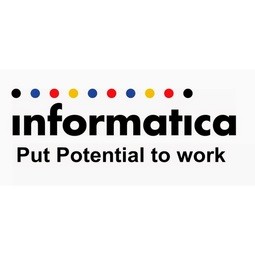下载PDF
Hardware Retailer Uses Data Warehouse to Track Inventory

技术
- 应用基础设施与中间件 - 数据库管理和存储
用例
- 库存管理
挑战
Ace 跟踪零售商订购了哪些产品,何时订购和发货。但是,该公司无法跟踪或预测实际销售额。由于性能和数据清理问题,用于报告的数据最多使用一周。需要将批发和库存数据与 POS 数据集成,以帮助推动关键业务决策、改进类别管理、降低库存成本和优化定价。依赖自定义编码来集成 POS 数据过度占用资源并导致严重的性能限制。
客户
王牌硬件
关于客户
-
解决方案
实时 POS 分析使 Ace 能够更快地补充库存系统和店内库存,从而降低库存持有成本。
收集的数据
Inventory Cycle Count, Inventory Levels, Orders Processed, Shipping Time, Buying Habits
运营影响
相关案例.

Case Study
Hospital Inventory Management
The hospital supply chain team is responsible for ensuring that the right medical supplies are readily available to clinicians when and where needed, and to do so in the most efficient manner possible. However, many of the systems and processes in use at the cancer center for supply chain management were not best suited to support these goals. Barcoding technology, a commonly used method for inventory management of medical supplies, is labor intensive, time consuming, does not provide real-time visibility into inventory levels and can be prone to error. Consequently, the lack of accurate and real-time visibility into inventory levels across multiple supply rooms in multiple hospital facilities creates additional inefficiency in the system causing over-ordering, hoarding, and wasted supplies. Other sources of waste and cost were also identified as candidates for improvement. Existing systems and processes did not provide adequate security for high-cost inventory within the hospital, which was another driver of cost. A lack of visibility into expiration dates for supplies resulted in supplies being wasted due to past expiry dates. Storage of supplies was also a key consideration given the location of the cancer center’s facilities in a dense urban setting, where space is always at a premium. In order to address the challenges outlined above, the hospital sought a solution that would provide real-time inventory information with high levels of accuracy, reduce the level of manual effort required and enable data driven decision making to ensure that the right supplies were readily available to clinicians in the right location at the right time.

Case Study
Remake Enterprise-to-production System
The client was running a legacy material flow tracking system and wanted to replace the system with a more effective one as the system was increasingly expensive to maintain and support and also was not extendable. The client's IT landscape was filled with modern applications and it was difficult to interface the material flow tracking system with modern applications.

Case Study
Expertech - Capital Tool Inventory
Costly tools used to splice fiber optic cables are an important part of Expertech’s operational and capitalized expenses, but the company did not have an automated system in place to track their tools and optimize their usage. The existing data in its tracking system was inaccurate and required manual updating, making it essential for the company to implement an efficient process to track and follow up on its capital tool inventory.

Case Study
Bekaert's Journey to Manufacturing Digitalization with TCS
Bekaert, a major player in the steel wire industry, was facing significant challenges in its manufacturing operations due to outdated data platforms. The company was unable to trace genealogy beyond a week's data and lacked diagnostic analysis of plant operations, which severely hampered decision-making. The absence of automation in benchmarking operations and extensive reporting on plant management further complicated the situation. To enhance efficiency and effectiveness in multiple focus areas, Bekaert needed a modern data platform capable of managing large volumes of data and generating actionable insights. The company aimed to drive quality, overall equipment effectiveness (OEE), and plant productivity based on these insights.







